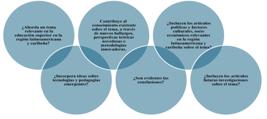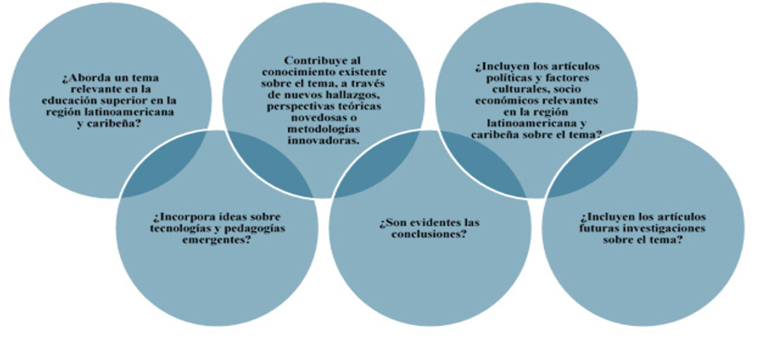Abstract
In Latin America and the Caribbean, higher education faces various challenges in the educational sphere. The region has experienced significant changes in recent years, where the implementation of Emerging Technologies (ETs) and Emerging Pedagogies has been fundamental in addressing these challenges. This work consists of a systematic review of the existing literature concerning Latin America and the Caribbean, on the implementation of ETs and Emerging Pedagogies in higher education in the region focusing on the last forty-five years, from 1976 to 2021, to achieve a temporal breadth, greater regional contextualization, and comprehensive vision. To this end, four specific databases were used. The aim was to define these concepts according to the literature and explore recent tools to innovate teaching in the region. Findings reveal a widespread adoption of emerging digital resources in Latin America, accompanied by pedagogical adaptations. However, the challenge of transforming the educational paradigm in the face of inevitable changes is highlighted. For future research, evaluating the impact of these technologies on learning outcomes is suggested, analyzing teacher training in their integration, exploring access and educational equity, investigating new pedagogical methodologies, conducting comparative analyses between countries, incorporating student perspectives, and evaluating the effect of related educational policies. These areas of research can provide a more comprehensive understanding of the implementation and impact of ETs and emerging pedagogies in higher education in the region.
Keywords:
emerging technologies; emerging pedagogies; higher education; Latin America; and the Caribbean

 From Emerging Technologies to Emerging Pedagogies: How are Latin America and the Caribbean implementing them in Higher Education?
From Emerging Technologies to Emerging Pedagogies: How are Latin America and the Caribbean implementing them in Higher Education? Thumbnail
Thumbnail
